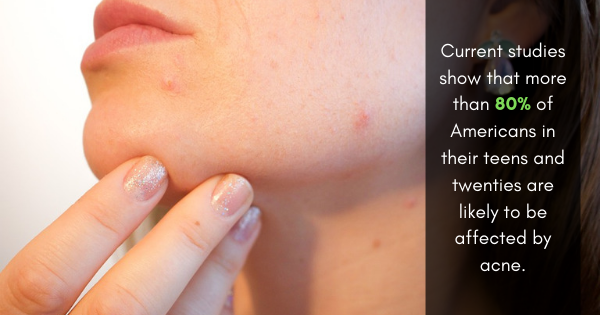
Everything You Need to Know about Ringworm
Ringworm can leave unsightly rashes on your skin — but understanding the causes of this condition is the first step to protecting yourself from it.
If you’ve ever noticed an itchy spot of red somewhere on your skin, you may have suffered from ringworm. This common fungal infection can leave an unsightly reddish ring on any patch of your skin, discolor and erode your nails, and even contribute to temporary hair loss, causing considerable stress and discomfort for those affected.
Fortunately, a number of simple treatments are readily available. Whether you’ve suffered from it in the past or hope to avoid it forever, we’ll help you manage ringworm by outlining its causes and symptoms and providing some steps you can take to protect yourself from it.
Causes and Symptoms: a Brief Overview
Ringworm is a fungal infection most often characterized by a circular rash on the skin. Despite its name, it isn’t caused by a worm; it’s the product of some forty types of fungi, most of which thrive in warm and damp environments such as locker rooms, swimming pools, and public showers. A highly contagious disorder, ringworm easily spreads from person to person, and it can even spread from animals to people. While it isn’t a life-threatening illness, it can still be a source of significant discomfort.
The most prominent symptom of ringworm is an itchy, scaly, circular rash on the skin. In some cases, the infection can extend to the nails, discoloring, hardening, and gradually fragmenting them. As the condition progresses, the rash can begin to blister and ooze while causing hair loss in the affected area.
How to Treat and Prevent Ringworm
As unpleasant as ringworm can be, it’s usually an easily treated condition. Indeed, most cases respond quite well to an over-the-counter antifungal ointment such as Lotrimin, which often eliminates the infection in two to three weeks. Should the infection spread to the scalp or nails, however, your doctor may need to prescribe an oral antifungal medication to effectively combat the fungus. While the method of treatment depends on the site of the infection, most patients can expect a complete recovery without lasting complications.
Looking to keep ringworm at bay for good? While this pesky condition can affect anybody, most people can avoid it with a few simple preventative measures. The most important step, of course, is to keep your skin dry at all times, since the fungi that cause ringworm fare best in moist climates. Since your feet are especially susceptible to ringworm, you should take particular care of them: thoroughly drying yourself after sweating heavily, removing soaked shoes or socks as soon as possible, and wearing boots while walking in snow or rain can all protect your skin from excessive moisture.
Ringworm is a highly contagious disease. As a result, you should limit contact with infected friends until they’ve received treatment. To reduce your risk of contracting it from strangers, you should never share clothing, towels, shoes, or hairbrushes. If you regularly participate in contact sports such as wrestling, you should wash your hands with a fungicidal soap in addition to thoroughly washing your body after each match.
Unlike other dermatological conditions, ringworm can also affect your family pet, placing your entire household at risk. If you notice any symptoms in your cat or dog, avoid petting him or her at the site of the infection, wash your hands after playing, disinfect any areas of the house that they have been in, and schedule an appointment with the vet to receive treatment as soon as possible. Fortunately, ringworm in animals can be just as easily treated as ringworm in their human owners.
Anybody can suffer from ringworm, but with some simple preventative measures, you can keep your risk of infection to a minimum. If you’re still concerned about contracting ringworm or are displaying symptoms, a licensed dermatologist can diagnose your condition and work with you to develop an appropriate treatment plan.









No Comments
Sorry, the comment form is closed at this time.